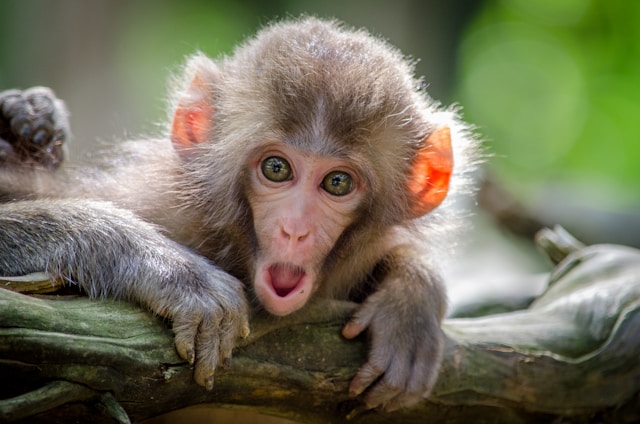Welcome to the captivating world of primates! Monkeys, with their playful antics and curious nature, have long fascinated both scientists and animal lovers alike. Have you ever wondered how long these charismatic creatures actually live? Join us on a journey through the lifespan of monkeys as we explore the factors that influence their longevity. Let’s swing into action and unravel the mysteries surrounding the lifespan of our furry friends!
Lifespan of Different Monkey Species
Monkeys, with their playful antics and curious nature, come in various species, each with its own unique characteristics. When it comes to lifespan, different monkey species have varying durations of life. For example, the tiny pygmy marmoset holds the record for the shortest lifespan among monkeys at around 12 years on average. On the other end of the spectrum are some larger monkey species like macaques and baboons that can live up to 30 years or more in captivity.
The capuchin monkeys typically live for about 15-25 years in captivity while squirrel monkeys have a lifespan of around 15-20 years. Howler monkeys can live up to 15-20 years as well. It’s fascinating to see how different factors such as size, habitat, diet, and genetic makeup contribute to the varying lifespans across these diverse monkey species.
As we delve into understanding the lifespans of different monkey species, it becomes apparent that each one has its own story to tell through its longevity or brevity. These incredible creatures continue to captivate us with their resilience and adaptability in various environments all over the world.
Factors Affecting the Lifespan of Monkeys
Factors affecting the lifespan of monkeys can vary depending on a multitude of factors. Genetics play a significant role; certain species are genetically predisposed to live longer than others. Environmental conditions also impact their longevity, with access to food, water, and shelter playing crucial roles.
Social dynamics within monkey groups can influence their lifespan as well. A harmonious group with strong social bonds may lead to less stress and better overall health for its members. On the other hand, conflicts or competition within the group can cause stress and potentially shorten lifespans.
Predation is another factor that affects how long monkeys live in the wild. Being hunted by predators puts additional pressure on monkeys’ survival instincts and can reduce their average lifespan compared to those living in safer environments.
It’s essential to consider all these factors when studying the lifespan of monkeys in different habitats around the world. By understanding these influences, researchers can work towards creating conservation strategies that help ensure the longevity of monkey species for generations to come.
Comparison with Other Animals
Monkeys are fascinating creatures with a lifespan that varies across different species. When comparing their longevity to other animals, monkeys fall somewhere in the middle of the spectrum. While some monkey species can live up to 30 years or more in captivity, others have shorter lifespans due to various factors such as predation and habitat loss.
In contrast to smaller mammals like mice or hamsters that typically live only a few years, monkeys enjoy a longer life expectancy. However, compared to larger mammals like elephants or whales that can live for several decades, monkeys’ lifespans may seem relatively shorter.
Despite not being the longest-living animals on Earth, monkeys still exhibit complex social behaviors and cognitive abilities that make them stand out in the animal kingdom. Their ability to adapt and thrive in diverse environments is truly remarkable.
Health and Aging in Monkeys
As monkeys age, just like humans, they may face various health challenges. Arthritis is a common issue among older monkeys, affecting their mobility and comfort. Dental problems can also arise, leading to difficulties in eating or grooming.
Regular veterinary check-ups can help monitor the overall health of aging monkeys and address any potential issues early on. Providing a balanced diet rich in fruits and vegetables can support their immune system and overall well-being.
Enrichment activities play a vital role in keeping aging monkeys mentally stimulated and physically active. This helps prevent boredom and behavioral issues that may arise with old age.
Ensuring a stress-free environment with proper social interactions is crucial for the emotional health of aging monkeys. Maintaining a familiar routine can also provide them with a sense of security as they grow older.
By prioritizing the health and well-being of aging monkeys, we can contribute to enhancing their quality of life in captivity or in the wild.
How Humans Can Help Improve Monkey Longevity?
As humans, there are several ways we can contribute to improving the longevity of monkeys in their natural habitats. One crucial aspect is habitat conservation – by protecting and preserving the forests where monkeys live, we ensure they have access to food sources and safe environments to thrive in. Additionally, supporting wildlife sanctuaries and rescue centers that focus on rehabilitating injured or orphaned monkeys can make a significant impact.
Education plays a vital role as well; raising awareness about the importance of conserving monkey populations and their habitats helps promote sustainable practices within local communities. Encouraging responsible tourism that respects wildlife and ecosystems also aids in safeguarding monkey populations from harmful human interference.
Moreover, advocating for stronger laws against illegal hunting and trafficking of primates is essential for their survival. By working together towards these goals, we can help ensure a brighter future for these fascinating creatures.
Conclusion
Understanding the lifespan of monkeys is crucial for their conservation and well-being. Different monkey species have varying lifespans influenced by genetics, environment, diet, and human impact. By learning about these factors and taking steps to protect their natural habitats, we can help ensure that monkeys live longer, healthier lives in the wild. As humans continue to coexist with these fascinating creatures, it’s essential to promote mutual respect and conservation efforts to safeguard their future on our planet.

